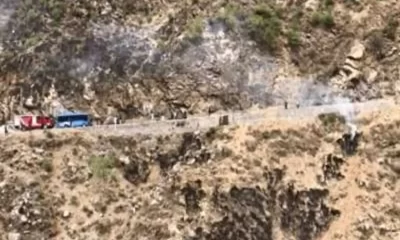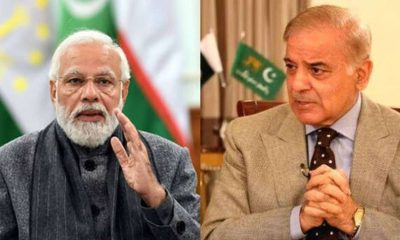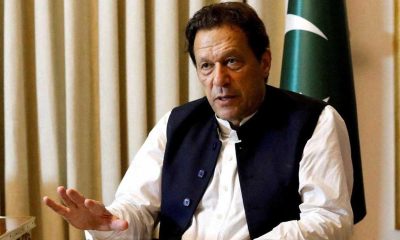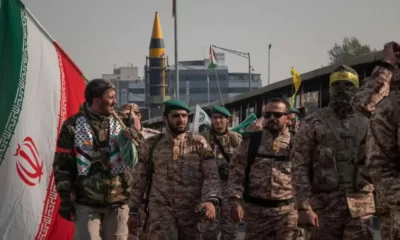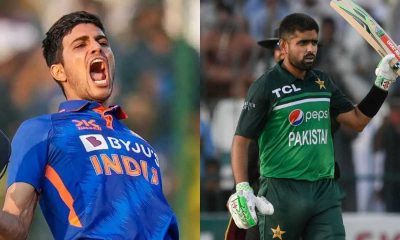India News
India, Pakistan DGMOs agree to abide by 2003 ceasefire pact
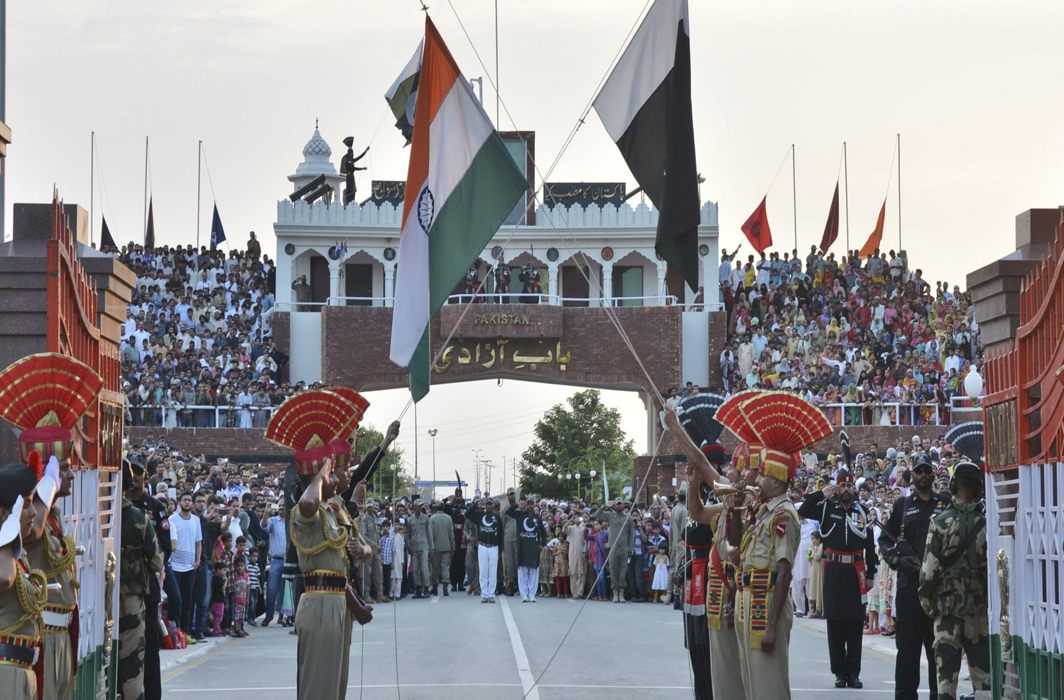
Pakistan media call it “a rare positive development”
After having long hostile atmosphere India and Pakistan have displayed a thaw in their ties on Tuesday. The Director General of Military Operations (DGMOs) of the two countries have agreed to “fully implement” the ceasefire pact of 2003 in “letter and spirit” to stop cross border firings in Jammu and Kashmir.
The two military commanders reviewed the prevailing situation along the Line of Control (LoC) and International Border (IB) in J&K during a conversation over the hotline at 6 pm, the Indian army said.
Pakistan’s leading Dawn newspaper reports from Islamabad “In a rare positive development, Pakistan and India agreed on Tuesday to restore ceasefire on the Line of control (LoC) and Working Boundary (WB) whose violation has left over 100 dead during the last nearly a year and half on the Pakistani side.”
According to Defense Ministry statement the special hotline contact was initiated by the Pakistani DGMO.
Read More: India-Pakistan hold Track II dialogue in Islamabad
Following the conversation between DGMO Lt General Anil Chauhan and his Pakistani counterpart Major General Sahir Shamshad Mirza, the two armies issued identical statements saying both sides agreed to fully implement the 2003 ceasefire understanding.
Read More: Pakistan rejects India’s protest on Gilgit-Baltistan order
The Indian army said, “Both the DGMOs agreed to fully implement the Ceasefire Understanding of 2003 in letter and spirit forthwith and to ensure that henceforth the ceasefire will not be violated by both sides.”
Meanwhile the Pakistan Army, in a statement, said “both the DGMOs agreed to undertake sincere measures to improve the existing situation to ensure peace and avoidance of hardships to the civilians along the borders.”
The LoC has been witnessing increasing hostilities in the last few months.
 The Indian army statement further said, “It was also mutually agreed that in case of any issue, restraint will be exercised and the matter will be resolved through utilisation of existing mechanisms of hotline contacts and Border Flag Meetings at Local Commanders’ Level.”
The Indian army statement further said, “It was also mutually agreed that in case of any issue, restraint will be exercised and the matter will be resolved through utilisation of existing mechanisms of hotline contacts and Border Flag Meetings at Local Commanders’ Level.”
It said the Indian army DGMO agreed with the proposal to undertake sincere measures to improve the existing situation to ensure peace and avoidance of hardships to the civilians along the borders.
Read More: Pakistan reaches to World Bank against India on Kishanganga dam
According to Indian defense sources, a total of 908 incidents of ceasefire violations by Pakistan army were reported till today in the current year as against 860 incidents during 2017, defense sources in New Delhi said.
On the other hand Dawn claimed that ceasefire violations have increased from Indian side during present Narendra Modi government. It claimed that “India last year committed 1,881 ceasefire violations- the highest number of breaches since 2003 ceasefire understanding. Those violations left 87 martyred on the Pakistani side, civilian and military casualties included. This year 1,050 ceasefire violations have been committed by India in just five months leaving 28 civilians dead.”
The Pakistani daily observed, “It was unprecedented for both sides to issue almost identical statements on the conversation, which unlike before did not accuse the other of wrongdoing. It could have easily been made a joint statement had it not been for the difference in their terminology like Working Boundary versus International Border and some other minor details that the respective sides decided to put in.”
Read More: Pakistan wants India play bilateral cricket series
It further said, “From the timing of the conversation, which was stated by India to be 18:00hrs and the immediate release of press statements afterwards, which normally does not happen and takes at least a few hours, it looked that the agreement had been reached earlier and the two commanders spoke only to formally commit to the understanding.”
India News
AAP leader Saurabh Bharadwaj says a conspiracy is underway for slow death of Arvind Kejriwal
Saurabh Bharadwaj also slammed the Tihar administration, BJP, Centre and Delhi LG and held them responsible for denying insulin to Kejriwal and said the Delhi Chief Minister has been suffering from Type-2 diabetes for the last 20-22 years.
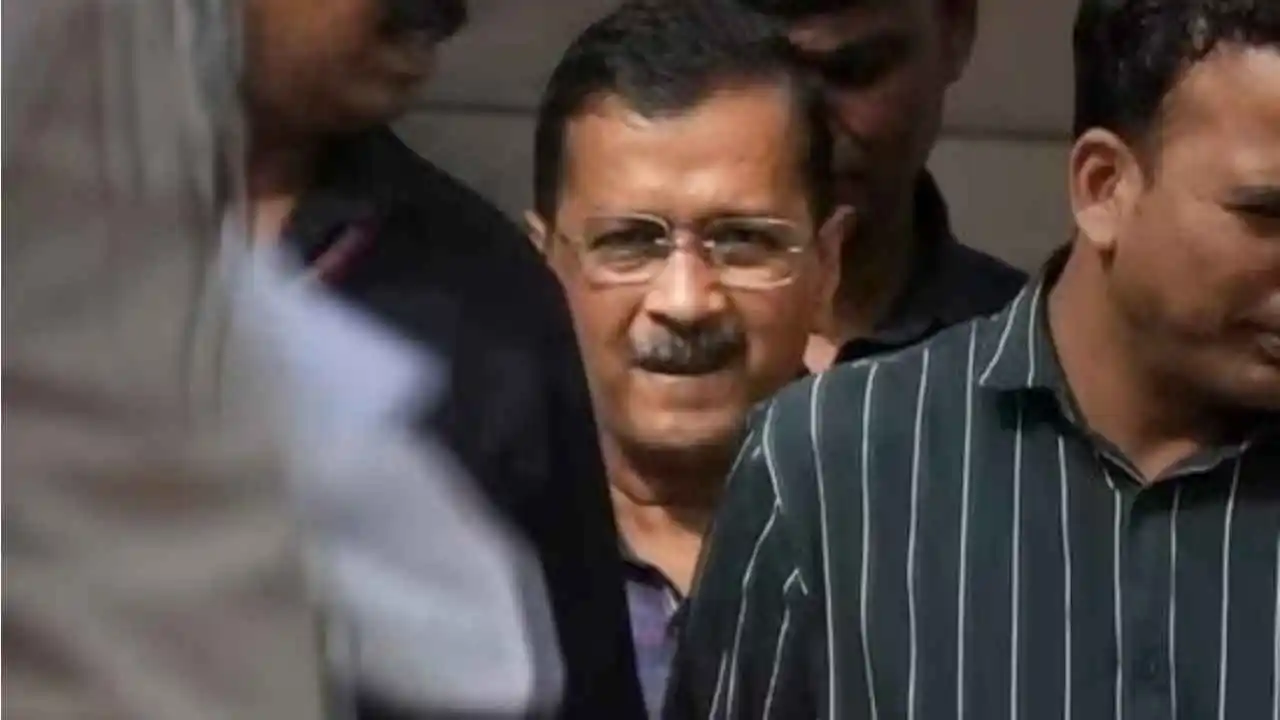
The Aam Aadmi Party on Saturday said that Delhi Chief Minister Arvind Kejriwal is being pushed towards a slow death inside Tihar jail as he is being denied insulin and consultations with his doctor. AAP spokesperson Saurabh Bharadwaj told the media that Arvind Kejriwal, who is suffering from Type-2 diabetes, has been asking for insulin and a video conferencing with his family doctor as the jail administration is not allowing him to do so.
Bharadwaj said he wants to say with full responsibility that a conspiracy is underway for the slow death of Kejriwal. He said his claims were on the basis of blood sugar readings of the Delhi Chief Minister in jail. He also slammed the Tihar administration, BJP, Centre and Delhi LG and held them responsible for denying insulin to Kejriwal and said the Delhi Chief Minister has been suffering from Type-2 diabetes for the last 20-22 years.
On Friday, the Delhi chief minister’s council Senior advocate Abhishek Manu Singhvi said Kejriwal has not been administered insulin to control his sugar levels since his arrest, and termed it alarming and shocking. The Enforcement Directorate had on Thursday claimed before the court that Kejriwal has been taking high sugar intake by consuming foods like mangoes and sweets every day, inspite of the fact that he was suffering from Type-2 diabetes, to create grounds for medical bail.
Kejriwal refuted the claims of the Enforcement Directorate by asserting before a court that the food he consumed was in accordance with the diet chart prepared by his doctor. Arvind Kejriwal confirmed that he only uses sugar free in his tea.
Bharadwaj further added that overall, it was a conspiracy to give a slow death to Arvind Kejriwal so that his multiple organs get damaged and when he comes out of jail after 2-4 months he goes for the treatment of heart, kidney and other organs.
2024 Lok Sabha Elections
Rahul Gandhi says BJP will not get more than 150 seats in Lok Sabha elections
Congress leader Rahul Gandhi said these BJP people are saying that they will secure this many or that many seats and but he wanted to make it clear that BJP will not get more than 150 seats.
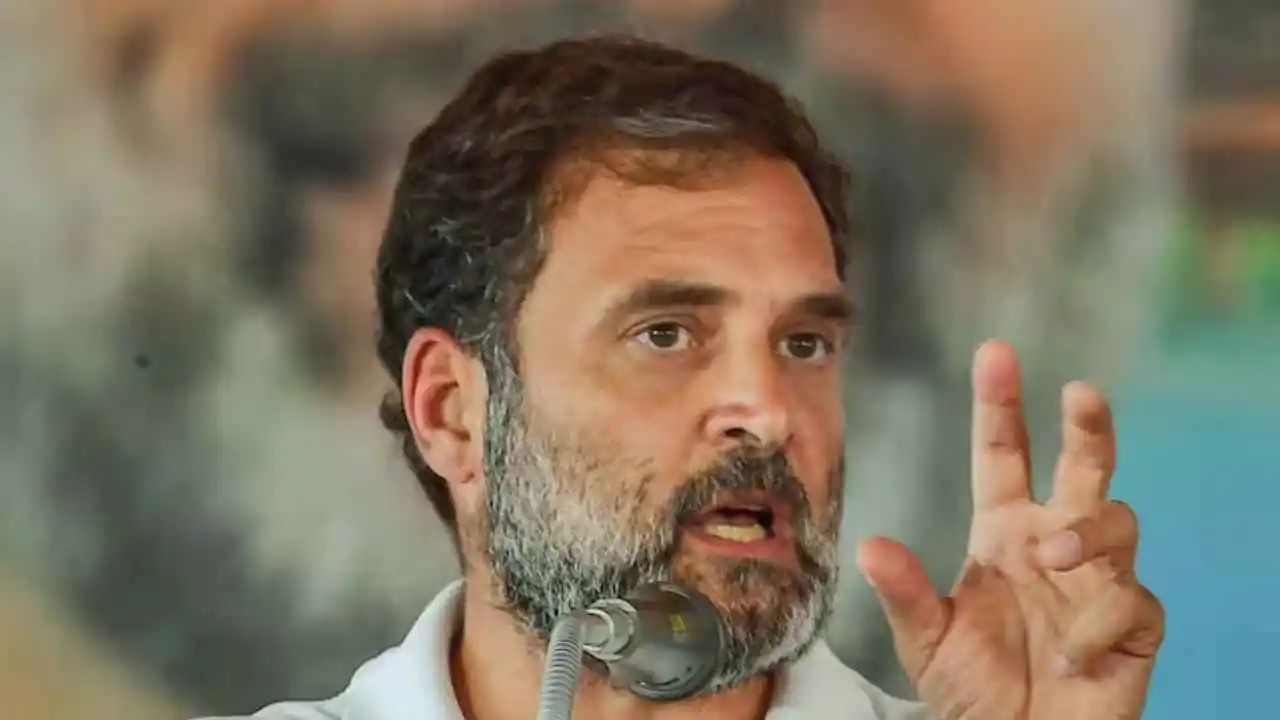
With completion of the first phase of the Lok Sabha elections yesterday, the stage is set for the 2nd phase of the Lok Sabha elections, which has lead the political parties to intensify and accelerate campaigning. Congress leader Rahul Gandhi too, with his eyes set on the 2nd phase was addressing a public rally at Bihar’s Bhagalpur on Saturday.
Addressing the rally, Congress leader Rahul Gandhi and said these BJP people are saying that they will secure this many or that many seats and but he wanted to make it clear that BJP will not get more than 150 seats.
Rahul Gandhi expressed his confidence that the I.N.D.I.A. Bloc will emerge victorious in the Lok Sabha elections. He also stressed on the party’s vision for INDIA once elected to power. Rahul Gandhi said, As soon as the INDIA alliance government comes, they will end the Agniveer scheme. He said India does not need two types of martyrs and added that everyone should get pension.
Gandhi further added that they will change GST and there will be one tax, minimum tax. He also talked about doubling the salary of Asha and Anganwadi workers. Gandhi said they are giving 2 guarantees to the farmers. The Congress party is going to waive off the farmers’ debts, and secondly, they are going to provide a guaranteed minimum support price to the farmers of India.
Congress leader even promised that his government would provide all diploma holders and graduates in India with the right to an apprenticeship. During the second phase of the Lok Sabha elections which are scheduled to be held on April 26, 4 constituencies in Bihar, including, Kishanganj, Bhagalpur, and Purnia ,Katihar will go for elections.
2024 Lok Sabha Elections
RJD leader Tejashwi Yadav says BJP’s 400 paar film has become a super flop on the first day itself
Tejashwi Yadav said the INDIA Bloc had held block wise meetings and the feedback that has come is very good that the BJP’s 400 paar film has flopped on day 1 of the Lok Sabha elections. He said the people of Bihar are aware and will teach BJP a lesson.
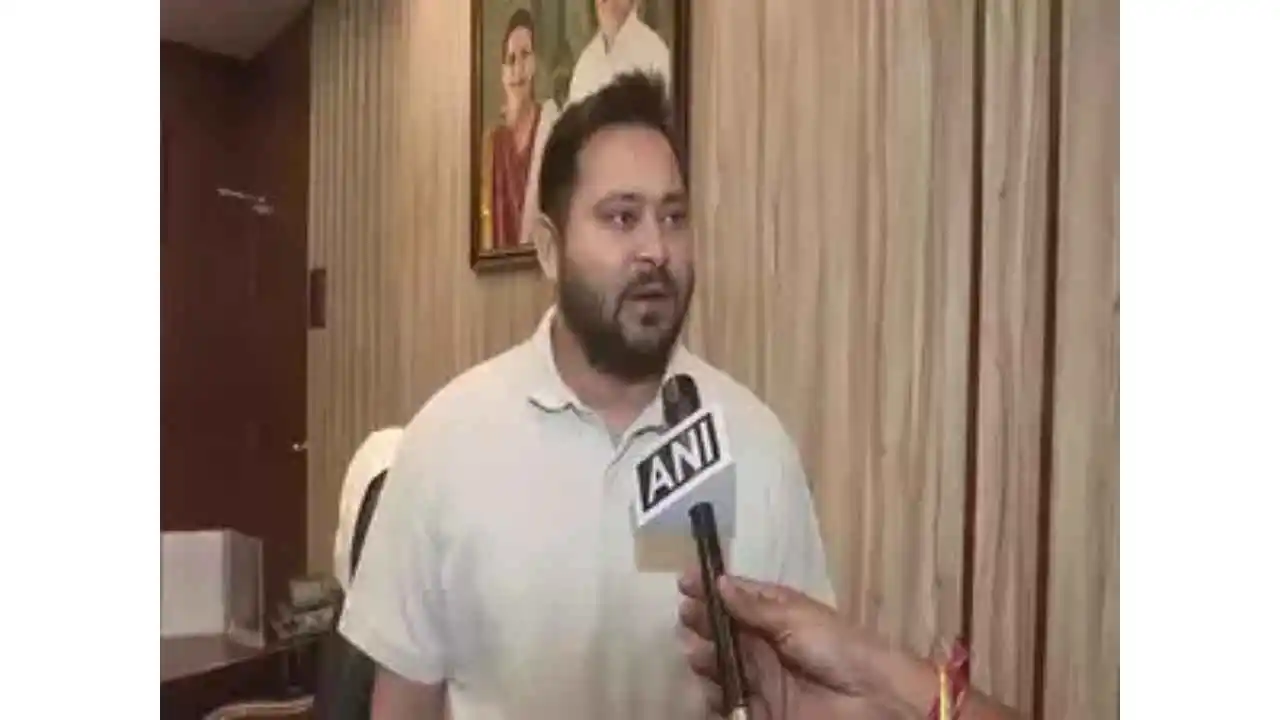
After the first phase of the Lok Sabha election got completed, Rashtriya Janata Dal (RJD) leader Tejashwi Yadav on Saturday took a dig at the Bharatiya Janata Party and said that the BJP’s 400 paar film has become a super flop on the first day itself. The RJD leader told that the media that there is no competition in the first phase of the elections as Bihar will give shocking results this time.
Yadav added that the Mahagathbandhan is winning all 4 seats in the first phase. He said the INDIA Bloc had held block wise meetings and the feedback that has come is very good that the BJP’s 400 paar film has flopped on day 1 of the Lok Sabha elections. He said the people of Bihar are aware and will teach BJP a lesson.
Tejashwi Yadav said there is no competition in the first phase. He said the people of Bihar will give shocking results this time. He added the BJP government has not done anything for the people of Bihar. He said the promises made by Modi ji in 2014 and 2019 were not fulfilled. Yadav added the public is tired of BJP’s statements and false promises. He said the opposition has promised that they will give a special package to Bihar along with special status.
Tejashwi Yadav said today the rally is with Rahul Gandhi ji in Bhagalpur. The entire INDIA Bloc and the Mahagathbandhan are working together. The RJD leader pointed out that unemployment is the biggest issue in Bihar. He said other important issues being faced by the people of Bihar are poverty, inflation, investment in the state. He said Migration and floods are also issues which need to be looked at. He added the people of BJP are very worried. He said the people of BJP say that they will abolish the Constitution. He said those who destroy the Constitution will themselves be destroyed.
-
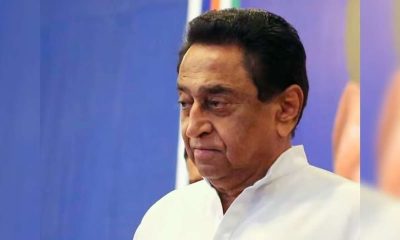
 2024 Lok Sabha Elections24 hours ago
2024 Lok Sabha Elections24 hours agoDeserted by key supporters, the Kamal Nath story looks set to wind to an end in Chhindwara
-
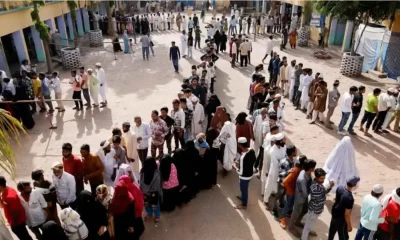
 2024 Lok Sabha Elections23 hours ago
2024 Lok Sabha Elections23 hours agoLok Sabha Elections: Voter turnout 62.02% in Tamil Nadu till 5pm
-

 Cricket news6 hours ago
Cricket news6 hours agoIPL 2024: Lucknow Super Giants beat Chennai Super Kings by 8 wickets
-

 Trending23 hours ago
Trending23 hours agoRanveer Singh reacts to his viral deepfake video promoting political party
-
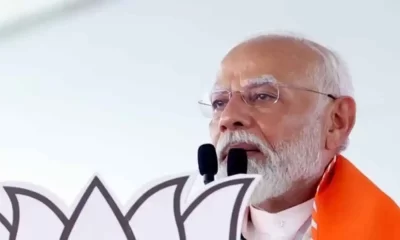
 2024 Lok Sabha Elections5 hours ago
2024 Lok Sabha Elections5 hours agoPrime Minister Narendra Modi takes dig at Rahul Gandhi, says like Amethi, Congress will lose its ground from Wayanad also
-
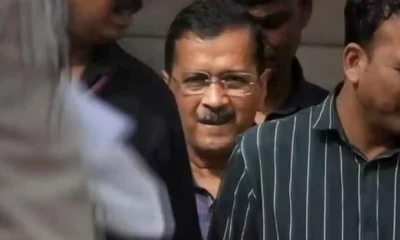
 India News1 hour ago
India News1 hour agoAAP leader Saurabh Bharadwaj says a conspiracy is underway for slow death of Arvind Kejriwal
-
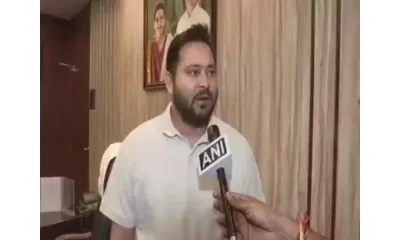
 2024 Lok Sabha Elections4 hours ago
2024 Lok Sabha Elections4 hours agoRJD leader Tejashwi Yadav says BJP’s 400 paar film has become a super flop on the first day itself
-
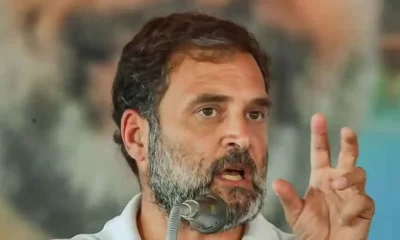
 2024 Lok Sabha Elections3 hours ago
2024 Lok Sabha Elections3 hours agoRahul Gandhi says BJP will not get more than 150 seats in Lok Sabha elections

